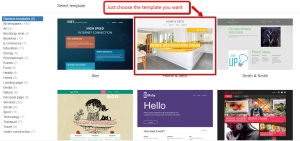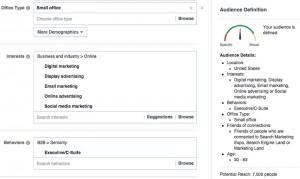 Have you gotten a call like this before? “Hi, Susan. I sent over the contract. Did you get it? And, my boss told me that he wants a couple of more people trained on your system that were not included in the contract. This won’t be a problem will it? Call me.” Susan was startled and angry. She gave her client her BEST deal already. Susan thought, “No. more people to train is not ok!” It is common for companies to continually ask for repeated price reductions from the sales rep. After all, haven’t we been willing to give them all the price reductions they asked for when the money was flowing and times were plentiful?
Have you gotten a call like this before? “Hi, Susan. I sent over the contract. Did you get it? And, my boss told me that he wants a couple of more people trained on your system that were not included in the contract. This won’t be a problem will it? Call me.” Susan was startled and angry. She gave her client her BEST deal already. Susan thought, “No. more people to train is not ok!” It is common for companies to continually ask for repeated price reductions from the sales rep. After all, haven’t we been willing to give them all the price reductions they asked for when the money was flowing and times were plentiful?
For years I’ve warned companies that this day would come. It had to. It was inevitable. The price of labor, raw materials, and overhead was going up. Eventually, those increases would have to be reflected in the price of goods and services. But, at the same time that things cost more to produce, customers got into the habit of demanding price concessions. That worked when volumes were high enough keep the boat afloat. Companies that have lost volume are now feeling the pinch. That is where you come in.
You, as the sales rep, are tasked with adding to the bottom line. So, how in the world are you going to add to the bottom line when all of your customers are demanding a better deal from you? Susan was caught off guard by her client’s call. She admitted to me that she didn’t know what to say. I immediately knew what I would have said, “Let’s make a deal!” The name of today’s game is making tradeoffs. I give a little and you give a little. It is that simple. Your company can no longer assume that volume will make up for price erosion. To make effective tradeoffs, follow these three guidelines.
- Know what you are willing to give. It sounds easy enough, but when Susan called me she didn’t know what ELSE she could give to her client. Adding more people to the training was not ok. So, Susan would have to think of something else to offer the client to keep the client engaged. Would it be a report? An assessment? What else could you offer a client that demands another price reduction? This step will require you to have a heart-to-heart conversation with your sales leadership. It is not enough to say that you cannot offer anything else and to hold the line on price. That is not realistic in this economy. Customers want vendors who are willing to work with them or they will look somewhere else.
- Know what you want from them. Again, it sounds easy enough, but Susan drew a blank. She told me that at first she could not think of one thing to ask for in exchange for allowing more people to be trained on her system for no additional cost. This is deadly. Knowing what you want in these kinds of situations must be part of your sales preparation process. You can expect customers to sand bag you with price concessions, even after they signed on the dotted line. You have no excuse to not know what to ask for in exchange. After 10 minutes of brainstorming, Susan knew what she wanted. She asked for and received an executive briefing with the C-Suite.
- Use if-then language. The trap that many people fall into when making the tradeoff is being vague and round-about. You are giving your customer an excuse to take advantage of you. Many people will respond in kind to your generosity, until their pocket books are threatened. Then, it is every man for himself! By using if-then language you are signaling that you are open, flexible and willing to have a back and forth conversation. This is an essential step if you are to trigger your customer to respond by agreeing to the tradeoff.
Susan was caught off guard by her client’s call because she hadn’t given any thought to the idea of tradeoffs. Once she got over being mad, she realized that she didn’t have a good answer. That’s why it is as important to prepare the tradeoff question as carefully as you prepare to handle objections.
Tradeoffs encourage a genuine back and forth conversation. Those conversations, when handled professionally, foster trust and respect. And, we’ve all heard that people do business with people who we like and trust.
Selling is not going to get any easier, but it will get a whole lot more creative. Making tradeoffs simply means that you and your customer get the maximum benefit from the transaction. What could be better than that?
Business & Finance Articles on Business 2 Community(113)
Report Post





